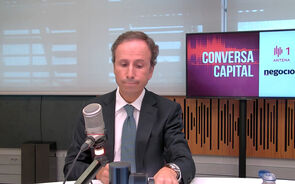A Psicologia no Trading....
9 mensagens
|Página 1 de 1
He who knows much about others may be learned,
but he who understands himself is more intelligent.
He who controls others may be powerful,
but he who has mastered himself is mightier still.
Lao Tsu
but he who understands himself is more intelligent.
He who controls others may be powerful,
but he who has mastered himself is mightier still.
Lao Tsu
É apenas a minha humilde opinião, para qq outro esclarecimento é favor consultar: http://www.miniclip.com/askjoe.htm
Do not move unless it is advantageous.
Do not execute unless it is effective.
Do not challenge unless it is critical.
Sun Tzu
Do not execute unless it is effective.
Do not challenge unless it is critical.
Sun Tzu
É apenas a minha humilde opinião, para qq outro esclarecimento é favor consultar: http://www.miniclip.com/askjoe.htm


É apenas a minha humilde opinião, para qq outro esclarecimento é favor consultar: http://www.miniclip.com/askjoe.htm
Money Mouse este meu ultimo post do Mark Douglas refere-se a essa questão...
um abraço
um abraço
É apenas a minha humilde opinião, para qq outro esclarecimento é favor consultar: http://www.miniclip.com/askjoe.htm
The instant you either decide or assume you know what's going to happen next, you will automatically expect to be right. However, what you know, at least at the rational level of thinking, can only take into consideration your unique past, which may not have any relationship to what is actually happening from the market's perspective. At that point, any market information that is not consistent with your expectation has the potential to be defined and interpreted as painful. To avoid experiencing the pain, your mind will automatically compensate, with both conscious and subconscious pain-avoidance mechanisms, for any differences between what you expect and what the market is offering.
What you will experience is commonly referred to as an "illusion." In a state of illusion, you are neither objective nor connected to the "now moment opportunity flow." Instead, you become susceptible to committing all the typical trading errors (hesitating, jumping the gun, not predefining your risk, defining your risk but refusing to take the loss and letting the trade turn into a bigger loser, getting out of a winning trade too soon, not taking any profits out of a winning trade, letting a winning trade turn into a loser, moving a stop closer to your entry point, getting stopped out and watching the market trade back in your favor, or trading too large a position in relationship to your equity). The five fundamental truths about the market will keep your expectations neutral, focus your mind in the "now moment opportunity flow" (by disassociating the present moment from your past), and, therefore, eliminate your potential to commit these errors.
When you stop making trading errors, you'll begin trusting yourself. As your sense of self-trust increases, so will your sense of self-confidence. The greater your confidence, the easier it will be to execute your trades (act on your edges without reservation or hesitation). The five truths will also create a state of mind in which you will genuinely accept the risks of trading. When you genuinely accept the risks, you will be at peace with any outcome. When you're at peace with any outcome, you will experience a carefree, objective state of mind, where you make yourself available to perceive and act upon whatever the market is offering you (from its perspective) at any given "now moment."
-Mark Douglas
What you will experience is commonly referred to as an "illusion." In a state of illusion, you are neither objective nor connected to the "now moment opportunity flow." Instead, you become susceptible to committing all the typical trading errors (hesitating, jumping the gun, not predefining your risk, defining your risk but refusing to take the loss and letting the trade turn into a bigger loser, getting out of a winning trade too soon, not taking any profits out of a winning trade, letting a winning trade turn into a loser, moving a stop closer to your entry point, getting stopped out and watching the market trade back in your favor, or trading too large a position in relationship to your equity). The five fundamental truths about the market will keep your expectations neutral, focus your mind in the "now moment opportunity flow" (by disassociating the present moment from your past), and, therefore, eliminate your potential to commit these errors.
When you stop making trading errors, you'll begin trusting yourself. As your sense of self-trust increases, so will your sense of self-confidence. The greater your confidence, the easier it will be to execute your trades (act on your edges without reservation or hesitation). The five truths will also create a state of mind in which you will genuinely accept the risks of trading. When you genuinely accept the risks, you will be at peace with any outcome. When you're at peace with any outcome, you will experience a carefree, objective state of mind, where you make yourself available to perceive and act upon whatever the market is offering you (from its perspective) at any given "now moment."
-Mark Douglas
É apenas a minha humilde opinião, para qq outro esclarecimento é favor consultar: http://www.miniclip.com/askjoe.htm
Está excelente ... mas
...o principal problema é a razão humana que julga estar sempre a decidir bem, fruto das suas convicções, emoções e outros por vezes facilmente influenciavel.
Tal como ele refere a maioria não preparado para ganhar e neste "mundo dos negócios" ganha quem errar menos.
Abraço
Tal como ele refere a maioria não preparado para ganhar e neste "mundo dos negócios" ganha quem errar menos.
Abraço
- Mensagens: 105
- Registado: 19/12/2002 13:21
- Localização: Porto
The best traders can put on a trade without the slightest bit of hesitation or conflict, and just as freely and without hesitation or conflict, admit it isn't working. They can get out of the trade—even with a loss—and doing so doesn't resonate the slightest bit of emotional discomfort. In other words, the risks inherent in trading do not cause the best traders to lose their discipline, focus, or sense of confidence. If you are unable to trade without the slightest bit of emotional discomfort (specifically, fear), then you have not learned how to accept the risks inherent in trading. This is a big problem, because to whatever degree you haven't accepted the risk, is the same degree to which you will avoid the risk. Trying to avoid something that is unavoidable will have disastrous effects on your ability to trade successfully.
-Mark Douglas
-Mark Douglas
É apenas a minha humilde opinião, para qq outro esclarecimento é favor consultar: http://www.miniclip.com/askjoe.htm
Your feelings have an immediate impact on your account equity. You may have a brilliant trading system, but if you feel frightened, arrogant, or upset, your account is sure to suffer. When you recognize that a gambler's high or fear is clouding your mind, stop trading. Your success or failure as a trader depends on controlling your emotions.
When you trade, you compete against the sharpest minds in the world. The field on which you compete has been slanted to ensure your failure. If you allow your emotions to interfere with your trading, the battle is over.
You are responsible for every trade that you make. A trade begins when you decide to enter the market and ends only when you decide to take yourself out. Having a good trading system is not enough. Most traders with good systems wash out of the markets because psychologically they are not prepared to win.
- Dr. Alexander Elder
When you trade, you compete against the sharpest minds in the world. The field on which you compete has been slanted to ensure your failure. If you allow your emotions to interfere with your trading, the battle is over.
You are responsible for every trade that you make. A trade begins when you decide to enter the market and ends only when you decide to take yourself out. Having a good trading system is not enough. Most traders with good systems wash out of the markets because psychologically they are not prepared to win.
- Dr. Alexander Elder
É apenas a minha humilde opinião, para qq outro esclarecimento é favor consultar: http://www.miniclip.com/askjoe.htm
A Psicologia no Trading....
The majority of traders spend most of their time looking for good trades. Once they enter a trade, they lose control and either squirm from pain or grin from pleasure. They ride an emotional roller coaster and miss the essential element of winning—the management of their emotions. Their inability to manage themselves leads to poor money management of their accounts.
If your mind is not in gear with the markets, or if you ignore changes in mass psychology of crowds, then you have no chance of making money trading. All winning professionals know the enormous importance of psychology in trading. All losing amateurs ignore it.
- Dr. Alexander Elder
If your mind is not in gear with the markets, or if you ignore changes in mass psychology of crowds, then you have no chance of making money trading. All winning professionals know the enormous importance of psychology in trading. All losing amateurs ignore it.
- Dr. Alexander Elder
É apenas a minha humilde opinião, para qq outro esclarecimento é favor consultar: http://www.miniclip.com/askjoe.htm
9 mensagens
|Página 1 de 1
Quem está ligado:
Utilizadores a ver este Fórum: PAULOJOAO e 62 visitantes


